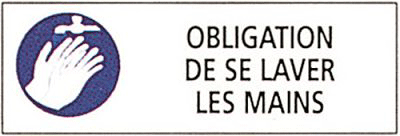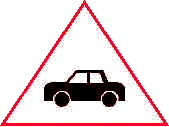1. The first step is to
logically avoid risk factors which can further exacerbate dry eyes. So dry eye
sufferers should avoid or limit as much as possible the following risk factors:
-
Wind
-
Heat
-
Dry Weather
-
Allergens
-
Pollution and other microparticules in the
air
-
Dust and other particules in
the air
-
Smoking areas and
environments
-
Air conditioner
-
Contamination
risks
-
Strong Lumonosity
Check our
websites on the quality air and pollens counts in Europe
Bellow, you'll find some
concrete measures you may try and adapt to your specific needs:
Outside in general
 Using covering glasses may reduce the impact of aggressions (wind, etc)
Using covering glasses may reduce the impact of aggressions (wind, etc)

-
Before leaving home, check
your dry check-list, so that you don't forget your dry eye medication (eye
drops, shades, other medications, etc.)
-
Avoid the direct contact of
wind, dry hot or cold air, using (sun)glasses / shades
-
Avoid polluted places
-
If you're allergic, avoid
direct contact of allergenes with your eyes using sunglasses. Allergy is
likely to exarcebate dry eyes
-
You may use moisture chamber
glasses. You may find some sunglasses which cover your eyes completly or even
try using diving gogles (you
may find some models with prescription glasses) to
reduce evaporation of the tears to see if it helps
or not.
At home, at work or any
other place where you may remain for long periods of time
-
Air conditioner
dryes the air and therefore the eyes so stop using it.
-
Cigarette smoke is
particularly nocive for dry eyes but dry eye sufferes should avoid all kinds
of smoke.
-
Avoid overheated atmospheres
-
Avoid ventilating equipments
which favour evaporation
-
Avoid sprays and other
aggressive cleaning products
-
Avoid the direct contact of
hair dryer or any similar equipment
-
Clean your hands frequently
(especially before putting your drops). A satisfactory
hygiene of the face is also
recommended.
-
Whenever possible, reduce
luminosity (shades, sunglasses,
etc.) to reduce photophobia
and related pain
-
drink a lot!

Don't forget to drink and wash your hands
regularly!
Hygiene is an
important aspect when you have to instill drops all day long!
In your car
-
Avoid using the air
conditioner (it's bad for the environnement anyway)
-
Don't keep the ventilation directed at your
eyes
-
Drive with the windows closed to avoid the
wind and pollution

Beware that many drops blur vision and
many medications reduce vigilence. It's not because administrations do not
recognize the extend of our disability that we should take risks (for ourselves
and others). Check the medications with the sign on the right.
In public places
-
Avoid or limit exposure to air conditioners
and places were low hygrometric measures are commun
(shopping malls, supermarkets, cinemas, shops)
-
Avoid smoking places (cafés, restaurants).
Prefer non-smoking areas.
 Some
astmospheres are particularly irritant for dry and inflammed eyes.
Cigarette smoke for instance is irritant and destabilises the lipid
layer of tears.
Some
astmospheres are particularly irritant for dry and inflammed eyes.
Cigarette smoke for instance is irritant and destabilises the lipid
layer of tears.
During some activities
-
Avoid water projection
towards your eyes, notably in the shower, etc. Use swimming goggles to avoid
any projection.
-
Use protection goggles during some
activities: manipulation of dust, manipulation of chemical products,
manipulation of wood.

 Some
toxic and irritant substances toxiques may be very aggressive for
fragile and dry eyes!
Some
toxic and irritant substances toxiques may be very aggressive for
fragile and dry eyes!
2. Once you have eliminated or reduced
aggravanting factors, you may consider reducing the consequences of your dryness
with a few environnemental changes:
-
Use an humidifier in the room you remain in
most of the time or place one at your office place. There are several types
(and prices) of humidifiers: hot vapor, cold vapor and ultrasonic (the last
two, offer the advantage of not overheating the room, but impose frequent
cleansing of the reservoir to avoid the propagation of bacteries).
Some are adapted to use regular plastic water bottles, thus
enabling the frequent change of the reservoir and are certainly easier to
carry on. If you don't have one, and need some humidity ponctually, you may
simple boil some water.
-
Use an hygrometer to control or adapt the
humidity level to your case (Ideally, humidity should be around 50%)
especially if you use heating equipments.
Some remarks on computer use
Using a computer implies exposing oneself to
some risks. While staring at a screen, human eyes tend to blink less (as with
intense reading) and thus increasing dryness (by enabling evaporation) or dry
spots. Blinking enables to spread the tearfilm regularly over the eye and the
cornea. Without it, and even for healthy eyes, the tearfilm is disrupted due to
evaporation.
-
Adapt the frequency of your screen (On
computer desktop, click right and choose Properties, then Settings, then
Advanced, choose the option Screen and set the frequency at an equal or higher
level than 80 Hertz, then click apply).
This may not be possible for certain laptop and some screen
-
Place your screen at a lower angle than
your sight (the eye won't have to be wide open to stare at the screen). A
study revealed that if one looks down rather than up, one reduces evaporation
by 3,4 times.
-
Adapt the display of the screen by using
the CRTL & + or - keys. This may not work on some sites but it does in ours!
-
Check any convergence problem of your eyes
-
Do some pauses regularly
-
Try to blink
consciously (it's not that easy, you'll!)
-
Set the luminosity to an appropriate level
and never work in the dark; avoid reflections on your screen
-
Place your humidifier close to you
-
Keep your drops close to you
3. Use some activities to close and rest your
eyes: for instance on the phone, listening to the radio, taking a bath, while
waiting for your next medical appointment!, during the commercials on TV, there
are many possible occasions or simply take a break.
4. Try to yawn. For
most people it favours tearing... enough to await the next artificial eye drop.
5. Eat healthy food, drink a lot, avoid bad
saturated fat and prefer essential fatty acids such as
Ω3
Please send us any other suggestion by
sending us a message to
Keratos Contact
▲

copyright ©
Keratos 2005-2007